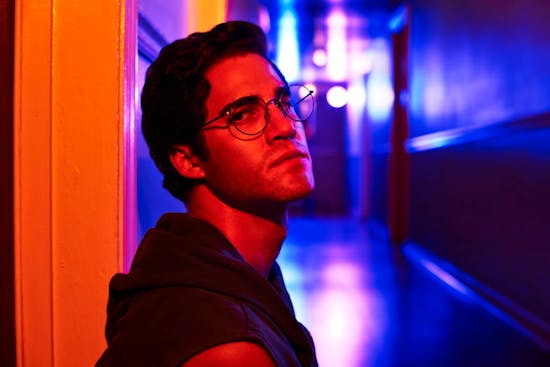LOS ANGELES – "The Assassination of Gianni Versace: American Crime Story" references one of the most notorious murders of the past 25 years, but even crime buffs may be thrown by the miniseries' twist.
It's not really about Versace.
The focus is squarely on the famed designer's killer, Andrew Cunanan. Which means executive producer Ryan Murphy and writer Tom Rob Smith spend more time on the jealous rages that led to the deaths of Minnesotans Jeffrey Trail and David Madson than they do on the fifth and final target of Cunanan's 1997 killing spree.
"There's a distinction between the victims," Smith said. "When Andrew's life was falling apart, he murdered his closest friend and lover. Once he crossed that line, he then started to kill to pursue ideas. Versace is the culmination of that."
Two episodes are set in the Twin Cities — the fourth and fifth of the nine-part drama that begins Wednesday — but were filmed in and around Los Angeles.
They include visits to a rural Minnesota dive bar (where singer Aimee Mann tackles an acoustic version of the Cars' "Drive") and the late lamented Nye's Polonaise Room, where friends dragged Cunanan one night. Fans of Nye's will be disappointed to see the Minneapolis restaurant and bar portrayed as a second-story nightclub with a dance floor the size of an airport hangar.
The decision to explore the mind of a murderer gave the storytellers a chance to make a statement about homophobia in the 1990s. Because Cunanan's first victims were gay, the show suggests that law enforcement responded initially with a shrug rather than shock until the killer gunned down a big name.
One episode is dedicated to Trail's decision to leave the Navy after a suicide attempt, spurred by the military's "don't ask, don't tell" policy toward gay troops. The Minneapolis Police Department comes across as particularly flat-footed and disinterested in diving deep. The series essentially argues that Versace's murder outside his Miami Beach mansion could have been averted if investigators had pursued the Cunanan case more aggressively.
"Versace's death is political," said producer Nina Jacobson. "It was the neglect, the isolation, the sort of otherness in how the police handled the murder of gay men. This was ultimately a death that didn't have to happen. Some of our anger informed us."
The reverse-chronological approach of the series is bound to throw viewers, especially after a nearly wordless, expertly choreographed opening, directed by Murphy, that features Versace's final moments following a morning stroll to retrieve fashion magazines from a Miami Beach newsstand.
There's also a red herring in the casting of Penélope Cruz as Donatella Versace. Other than showing off a gruff Italian accent, the Oscar winner isn't given much to do. The production team clearly spent megabucks re-creating Versace's studios in Italy, but so little time is spent on the lavish set that it's like stopping at a fancy restaurant for an appetizer.
"The obsession with Gianni Versace and the dance between the creator and the destroyer is the spine, the fabric, of what held this together," said producer Brad Simpson, who also worked on the previous "Crime" installment, "The People v. O.J. Simpson," which won the Emmy for best miniseries. "But we felt it was really important along this journey to not only tell this story of Versace and what he meant, but use that to tell the story of David Madson and Jeff Trail and the other victims."
They considered putting Cunanan's name in the title of the series, as Maureen Orth did in her book "Vulgar Favors: Andrew Cunanan, Gianni Versace and the Largest Failed Manhunt in U.S. History," the primary source for the screenplay. "We decided that, ultimately, it was elevating him to a place we didn't want to put him in," Simpson said.
The emphasis on Cunanan over Versace (played by Edgar Ramírez, best known for portraying a terrorist leader in 2010's "Carlos") and his longtime lover Antonio D'Amico (pop star Ricky Martin) puts the pressure on actor Darren Criss, who made his name as a happy-go-lucky teen singer on the 2009-15 Murphy series "Glee." His Broadway credentials are utilized in "Versace" only when Cunanan dances shirtless while torturing sexual partners during S&M sessions or sings along to "Pump Up the Jam" on the car radio while a deathly nervous Madson sweats in the passenger seat.
Criss didn't take the role home with him. "I know a lot of people who jump into these things, and it really consumes their whole lives," he said. "I think what saved me is that Andrew compartmentalized so many things in his life: emotions, people, experiences. He was able to dissociate and, likewise, I was able to dissociate. As an actor, it's your job to find as many common denominators between you and the person you are playing, however good or bad. The differences are few in number, but high in content. Those differences made it OK for me to step away from it because I was doing things on set so far away from myself at home."
While this "American Crime Story" decidedly emphasizes the criminal side, Murphy cautions viewers about reading too much into how future franchise installments might play out. The next show in the anthology will look at the effects of Hurricane Katrina on New Orleans. The fourth season will deal with the Bill Clinton-Monica Lewinsky scandal.
"One of the joys for me about this show is that every season will have a different tonality," Murphy said. "The first season was very much a courtroom potboiler. The second season is a manhunt thriller. The third season really looks at the medical conditions in our country, and global warming, and who decides who gets to live and die. So every season will be different from anything we've done before."






